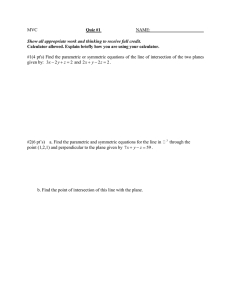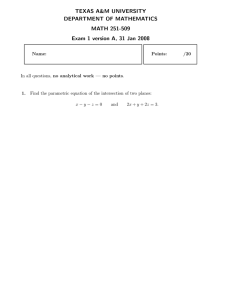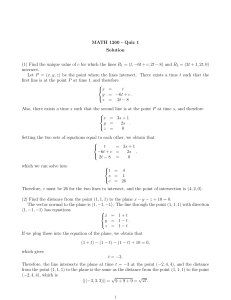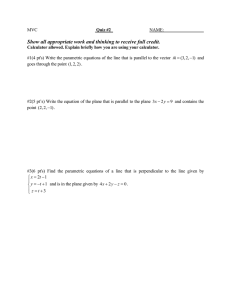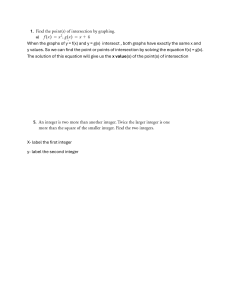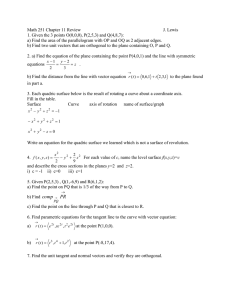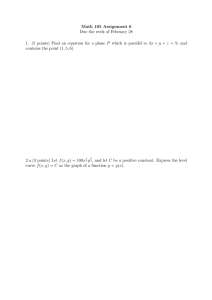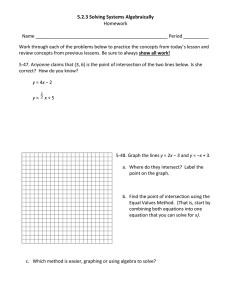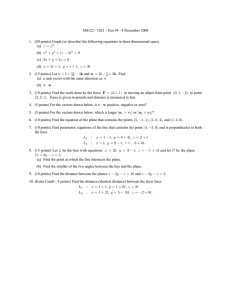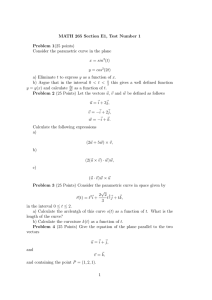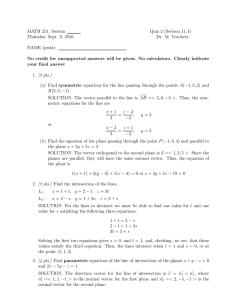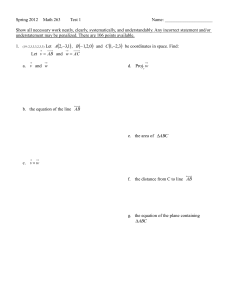Math 217 Assignment 2 Due Friday September 25
advertisement
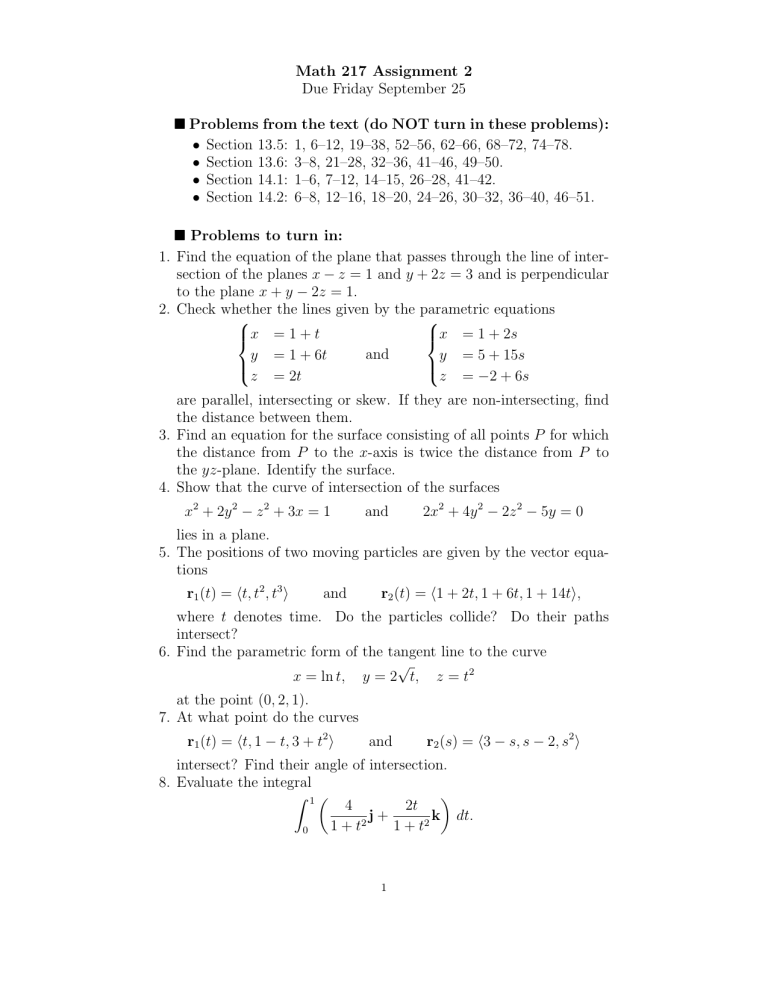
Math 217 Assignment 2 Due Friday September 25 Problems from the text (do NOT turn in these problems): • Section 13.5: 1, 6–12, 19–38, 52–56, 62–66, 68–72, 74–78. • Section 13.6: 3–8, 21–28, 32–36, 41–46, 49–50. • Section 14.1: 1–6, 7–12, 14–15, 26–28, 41–42. • Section 14.2: 6–8, 12–16, 18–20, 24–26, 30–32, 36–40, 46–51. Problems to turn in: 1. Find the equation of the plane that passes through the line of intersection of the planes x − z = 1 and y + 2z = 3 and is perpendicular to the plane x + y − 2z = 1. 2. Check whether the lines given by the parametric equations x = 1 + t x = 1 + 2s and y = 1 + 6t y = 5 + 15s z = 2t z = −2 + 6s are parallel, intersecting or skew. If they are non-intersecting, find the distance between them. 3. Find an equation for the surface consisting of all points P for which the distance from P to the x-axis is twice the distance from P to the yz-plane. Identify the surface. 4. Show that the curve of intersection of the surfaces x2 + 2y 2 − z 2 + 3x = 1 and 2x2 + 4y 2 − 2z 2 − 5y = 0 lies in a plane. 5. The positions of two moving particles are given by the vector equations r1 (t) = ht, t2 , t3 i and r2 (t) = h1 + 2t, 1 + 6t, 1 + 14ti, where t denotes time. Do the particles collide? Do their paths intersect? 6. Find the parametric form of the tangent line to the curve √ x = ln t, y = 2 t, z = t2 at the point (0, 2, 1). 7. At what point do the curves r1 (t) = ht, 1 − t, 3 + t2 i and r2 (s) = h3 − s, s − 2, s2 i intersect? Find their angle of intersection. 8. Evaluate the integral Z 1 4 2t j+ k dt. 1 + t2 1 + t2 0 1
